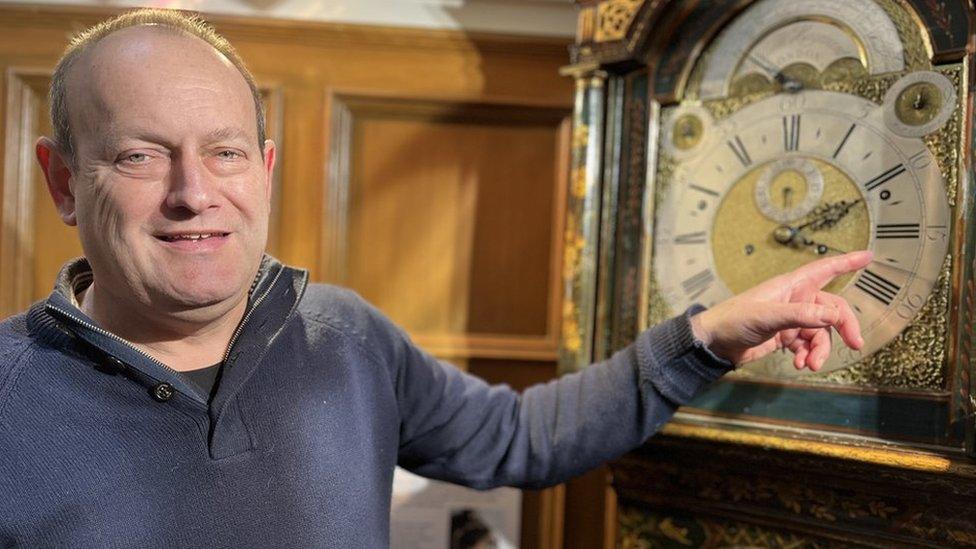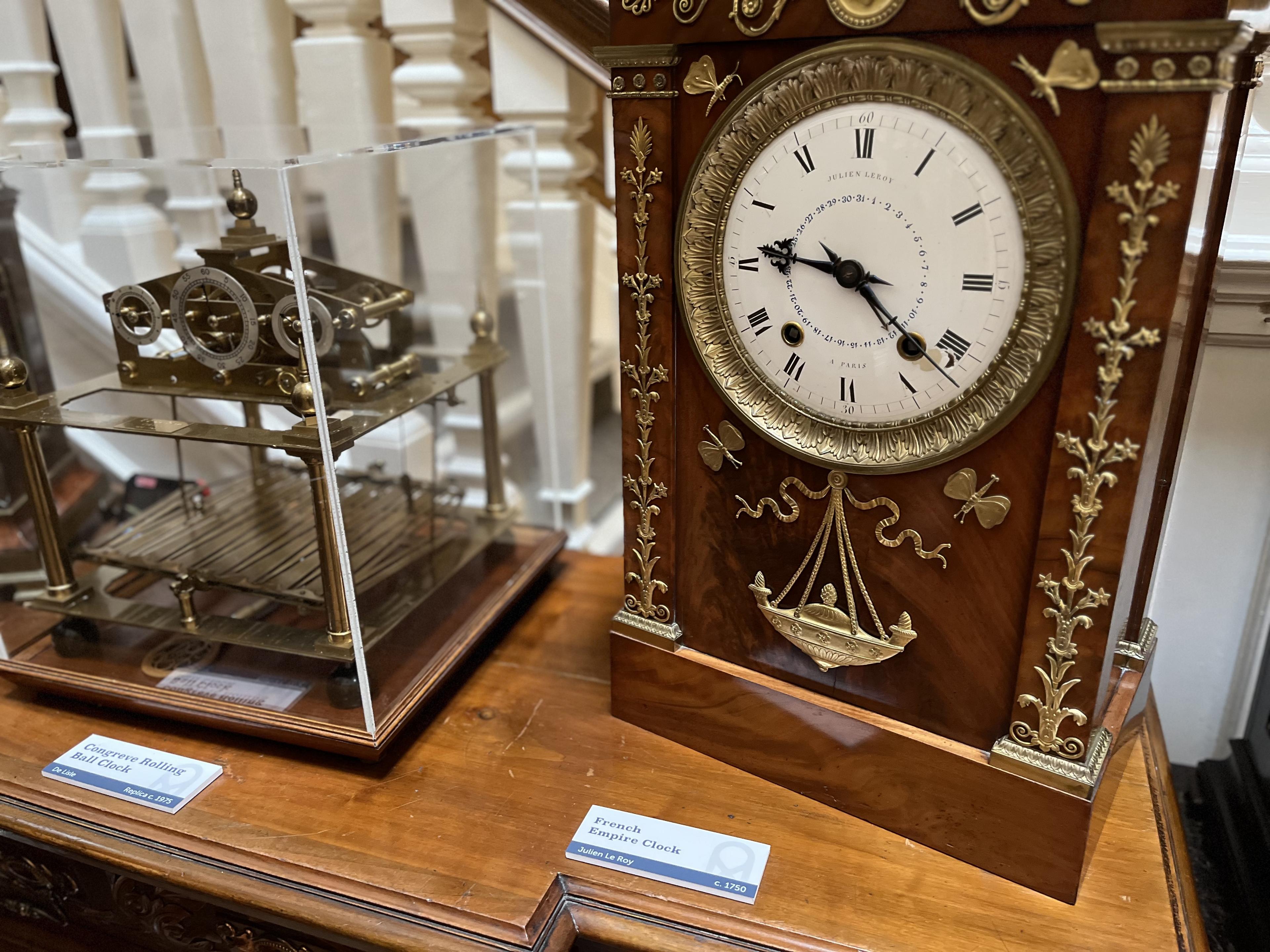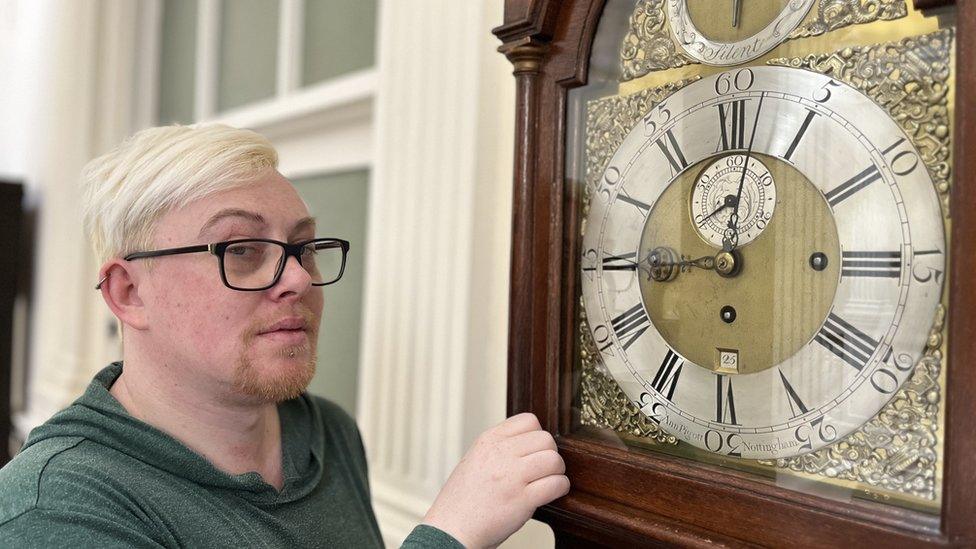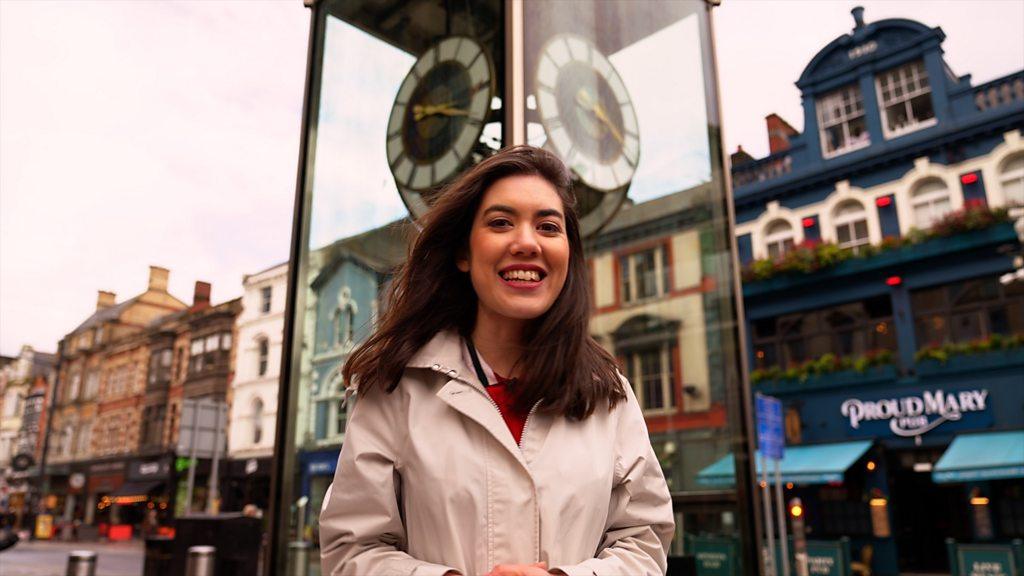The Nottinghamshire museum where it takes 90 minutes to change clocks
- Published

Dave Ellis says it is "quite straightforward and enjoyable" to wind the clocks
The Museum of Timekeeping is gearing up for the clocks to spring forward an hour on Sunday.
Staff at the museum in Upton, Nottinghamshire, will have to manually wind each of its clocks when British Summer Time begins at 01:00.
Dave Ellis, assistant manager at the museum, said "you have to be very careful" with each clock.
The 60-year-old explained it takes about 90 minutes to manually wind up all of the clocks in the collection.

The Museum of Timekeeping is based in Upton Hall
Mr Ellis, from Gedling in Nottinghamshire, said: "When you wind it forward, you've got to go all the way round, you can't go backwards.
"You've got to let the clock chime before you keep winding the hands forward, otherwise you can damage the mechanism.
"Every clock takes a little bit more or less, but it can take me at least 90 minutes to wind all the clocks, because some of them have hoods on that you've got to take off.
"You've got to be very careful because the glass is hard to replace because it's quite thin and you can't actually get it now. Everything's a bit time-consuming."

Rob Finnigan says moving the clocks forward in 1916 gave people more working time in the daylight
Museum manager, Rob Finnigan, said the concept of time going forward an hour was first established in 1916 during World War One.
The 38-year-old said: "Time going forward in this way, or daylight savings time as we know it now, was actually a German invention.
"There have been debates about removing it.
"Personally I find it an archaic system now. I think if it was abandoned, it would be a wonderful relic that's gone on for over a century, but I don't think it's necessary at the moment."

Follow BBC East Midlands on Facebook, external, on X, external, or on Instagram, external. Send your story ideas to eastmidsnews@bbc.co.uk, external or via WhatsApp, external on 0808 100 2210.
- Published29 March 2024
